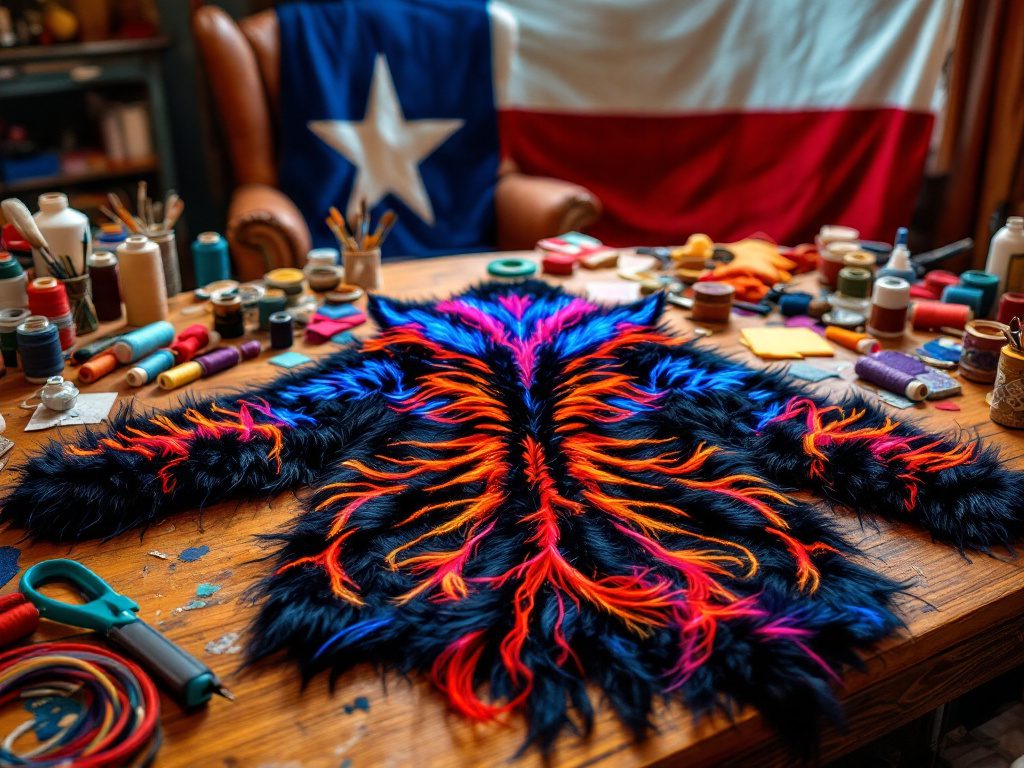The Absurdity of the “Furries” Panic
Try to picture this: a Texas public school classroom where, among the buzz of lesson plans and chatter, a few students languidly curl up, purring, as their teacher brings out a row of litter boxes. It’s the kind of scene that might belong in the realm of adolescent fantasy fiction—and that’s exactly where it should stay. Yet, thanks to Texas State Representative Stan Gerdes and the so-called FURRIES Act, it has become fodder for serious public policy debate.
During a heated legislative hearing, Rep. Gerdes struggled to provide a single shred of concrete evidence that any Texas school was accommodating “furry” students with litter boxes or permitting animal costumes as daily attire. When grilled by fellow lawmaker Rep. James Talarico, Gerdes sheepishly admitted that his entire crusade was staked on hearsay—not hard facts. The administrator whose anecdote allegedly inspired the bill quickly refuted the existence of ‘furry-related incidents’ in her district.
These are not isolated rumors, either. According to a careful PolitiFact investigation, the litter box panic is a falsehood that’s been rated “pants-on-fire” wrong by every credible outlet investigating it, from the Dallas Morning News to USA Today. Even Governor Greg Abbott joined the echo chamber, asserting—without evidence—that “kids go to school dressed up as cats with litter boxes in their classrooms.” When pressed for an example, Abbott fell silent, the story dissipating faster than a bad meme.
Legislating on a Lie: Real Dangers, Real Consequences
What does this legislation actually do? The F.U.R.R.I.E.S. Act goes much further than banning a mythical classroom cat parade. It criminalizes any “non-human behavior” at schools: self-grooming, animal noises, collars, tails, and even teachers who show tolerance. Any passerby—parent, teacher, even a politically motivated activist—could file a complaint, triggering intrusive investigations and threatening schools with fines starting at $10,000, ballooning to $25,000 for further infractions.
This targets both students and educators, undermining already fragile trust in public schools. Critics, such as Houston-area education advocate Linda Estrada, argue that these laws are a “transparent attempt to smear and destabilize public schools for political gain.” The politicization of invented narratives serves as a smoke-and-mirrors distraction from the real challenges Texas students face—underfunding, teacher shortages, and deep inequities. Instead, this creates more fear, more paperwork, and more stigma for kids who are already marginalized.
The real question: why would a political leader fixate so obsessively on an urban legend debunked by local administrators, fact-checkers, and even common sense? When bills like these are granted oxygen, it says a great deal about the priorities of those in power.
“Weaponizing conspiracy theories against public education isn’t just cynical—it’s dangerous. When lawmakers devote months to debating whether kids are purring in homeroom, we’re ignoring the very real issues jeopardizing our children’s future.”
Harvard historian Dr. Jill Lepore draws parallels between this latest moral panic and past culture-war flashpoints—the Red Scare, the Satanic Panic, and more recently, critical race theory hysteria. Each time, a concocted threat distracts from the deliberate undermining of America’s vital civic institutions.
The Real Agenda: Undermining Public Education
Panic-driven legislation like the FURRIES Act doesn’t emerge in a vacuum. It coincides neatly with the Texas GOP’s push for school voucher programs that divert funding away from public schools into private hands. Manufactured crises, from nonexistent litter boxes to alleged book bans, serve as justifications for weakening the public system in the eyes of voters. According to a survey by the Texas American Federation of Teachers, public confidence in neighborhood schools has measurably eroded, aligning closely with the timeline of these conspiracy-fueled legislative attacks.
A closer look reveals this is about control, not cats. Laws designed to “protect” students from imagined threats historically end up marginalizing LGBTQ+ youth, students with disabilities, or any child who stands out. Dr. Jennifer Glass, a sociologist at the University of Texas, warns that social scapegoating not only fails to solve genuine behavioral issues in schools, but actively increases loneliness and discrimination by pitting children and families against each other for political sport.
Rather than legislate fantasy, Texas lawmakers might revisit the real metrics: in 2023, state education funding per student ranked in the bottom quartile nationwide. Chronic teacher shortages have driven a reliance on substitutes and overcrowded classrooms. And students of color, English language learners, and rural Texans face glaring achievement gaps—none of which are improved by chasing after imaginary feline interlopers.
Beyond that, using fear as cover for policy advances a dangerous trend—one where democratic debate is replaced by viral fictions and evidence-free legislation. The democratic promise of public education rests on the belief that schools are places of learning, acceptance, and honest struggle—not stages for the latest internet conspiracy.
Where Does Texas Go from Here?
Make no mistake: the FURRIES Act is a cautionary tale about how fast misinformation can leap from online rumor to legislative reality. The political right seems content to waste precious session time managing fairy tales, while problems that actually affect Texas children—hunger, poverty, classroom crowding—go neglected. Progressive voices are right to call out the fraud at the heart of these culture wars and to defend the genuine value of public schools as engines of opportunity and social cohesion.
History will not be kind to those who, confronted with the urgent needs of real children, chose instead to tilt at make-believe windmills. Real leadership requires facing facts and investing in our collective future—not scapegoating vulnerable students and stigmatizing difference for fleeting political gain.

